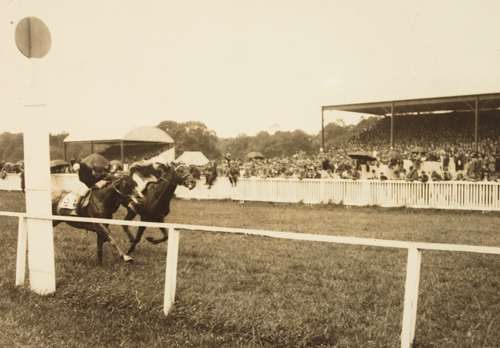Sports to stop, theatres and cinemas to close under new anti-Treaty order
Dublin, 15 March 1923 - A period of ‘national mourning’ is required over treatment of republican prisoners - The anti-Treaty Government of the Republic of Ireland has issued a decree or ‘proclamation’ ordering a complete ban on social and recreational activity.
In order to allow for an ‘indefinite period’ of national mourning, the proclamation states that ‘sports and amusements are to be suspended, all theatres, picture houses, and other places of amusement closed, and, in particular, all horse-racing, hunting, coursing, and all outdoor sports discontinued.’
Signed by Mr. P.J. Rutledge and dated March 14th, the proclamation explains that the period of mourning was required in view of the:
‘murders of distinguished patriot soldiers, taken prisoners in war, and the daily violation of the usages of war by the torture and treatment and ill-treatment of Republican prisoners, and their ‘execution’ in large numbers for the supposed offence of being taken with arms in their hands, and in consideration for their bereaved families and relatives, and for the many thousands of Republican prisoners, unlawfully imprisoned, and their dependants and the poor generally, who are suffering, and in order to direct public attention to these and to the national sorrows... ’
On the night after the order was issued, La Scala Theatre in Dublin did not open its doors. It is understood that a notice to remain closed has been served to the management of the theatre.
In an effort to curtail the impact of the republican order and prevent the spread of fear, the Dublin newspapers were prevented from publishing details of the prohibition order in subsequent editions and all messages sent to London papers referring to the order were destroyed by a censor stationed at the National army headquarters.
The order failed to prevent the staging of the much-anticipated World Boxing Title fight in Dublin, or a ladies hockey international, or a race meeting in Baldoyle. Nevertheless, the news from various theatres and picture houses across Dublin indicates that members of the public are afraid to attend. Although theatre and cinema managers held a meeting with the Free State government and armed guards were available to allow them to open their doors. However, in the absence of an audience in some cases no performances took place.
[Editor's note: This is an article from Century Ireland, a fortnightly online newspaper, written from the perspective of a journalist 100 years ago, based on news reports of the time.]





















